NewsBeat
Netflix to raise prices as Squid Game and sport fuels subscribers
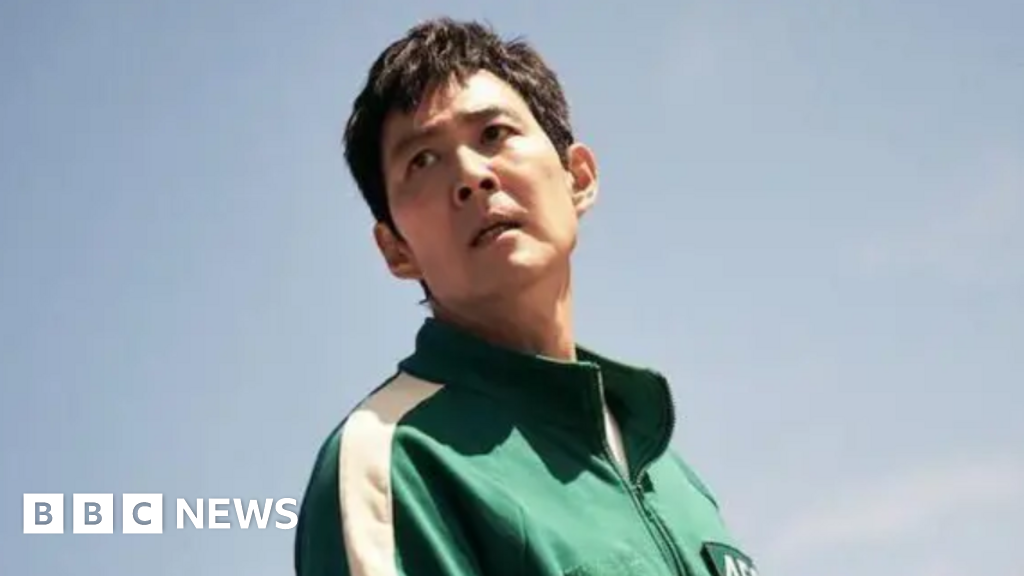
Netflix will raise prices across a number of countries after adding nearly 19 million subscribers in the final months of 2024.
The streaming firm said it will increase subscription costs in the US, Canada, Argentina and Portugal.
“We will occasionally ask our members to pay a little more so that we can re-invest to further improve Netflix,” it said.
Netflix announced better-than-expected subscriber numbers, helped by the second series of South Korean drama Squid Game as well as sports including the boxing match between influencer-turned-fighter Jake Paul and former world heavyweight champion Mike Tyson.
In the US, prices will increase across almost all plans including the standard subscription with no adverts which will now cost $17.99 a month, up from $15.49.
Its membership with adverts will also rise, by one dollar to $7.99.
The last time Netflix raised prices in the US was October 2023, when it also lifted costs for some plans in the UK.
Asked if prices were set to increase in the UK, a spokesperson for Netflix said there was “nothing to share right now”.
Meanwhile, the company said it finished last year with more than 300 million subscribers in total. It had been expected to add 9.6 million new subscribers between October and December but far surpassed that number.
It is the last time that Netflix will report quarterly subscriber growth – from now on it said it will “continue to announce paid memberships as we cross key milestones”.
As well as Squid Game and the Paul v Tyson fight, Netflix also streamed two NFL games on Christmas Day.
It will also broadcast more live events including WWE wrestling and has bought the rights for the FIFA Women’s World Cup in 2027 and 2031.
Paolo Pescatore, a technology analyst at PP Foresight, said Netflix “is now flexing its muscles by adjusting prices given its far stronger and diversified programming slate compared to rivals”.
Net profit between October and December doubled to $1.8bn compared to the same period a year ago.
Sales rose from $8.8bn to $10.2bn.
NewsBeat
Women’s Ashes 2025: Amy Jones says England’s ‘best is yet to come’
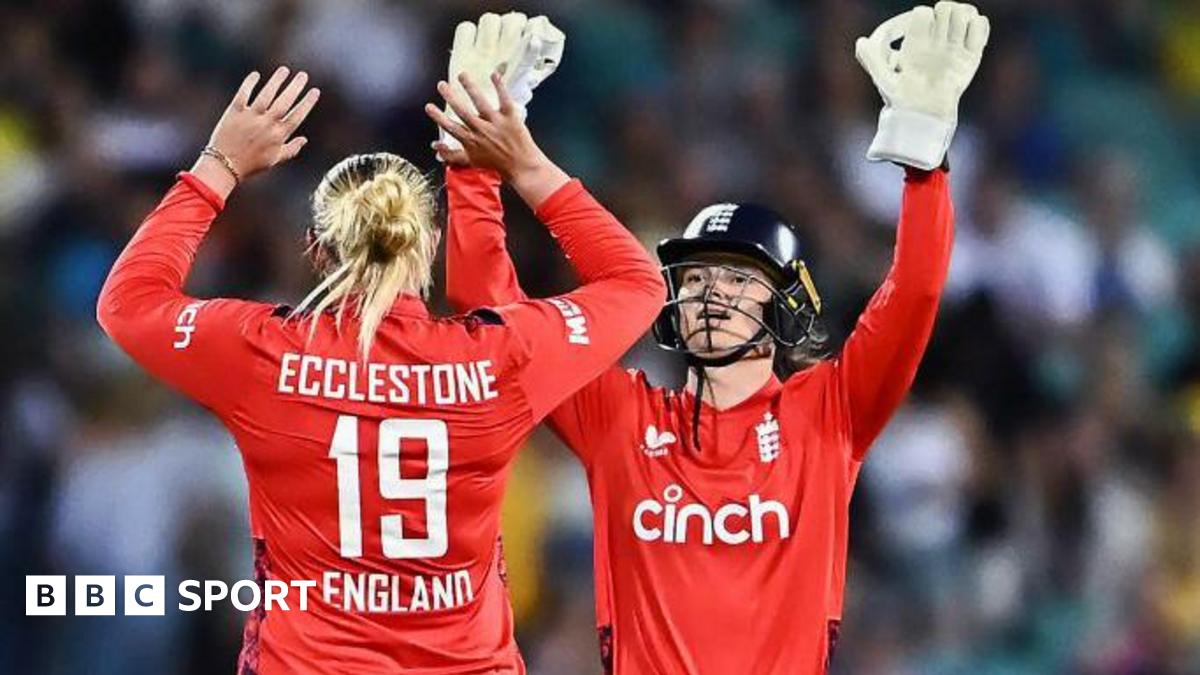
England wicketkeeper Amy Jones says the team’s “best cricket is yet to come” as they prepare to salvage some pride from the remainder of the Women’s Ashes.
Australia retained the Ashes at the earliest opportunity with a thumping 57-run win in the first T20 at the Sydney Cricket Ground, which handed them an unassailable 8-0 lead in the points-based series.
Each white-ball match is worth two points and the hosts won the preceding one-day international series 3-0, with the second of three T20s taking place in Canberra on Thursday at 08:40 GMT.
Jones acknowledged the disappointment felt by the team and the fans, but remains confident that England they can win the remaining matches to finish the series with a draw.
“We still feel positive that we can put on a show and entertain and inspire you all,” Jones told BBC Sport.
“There’s been many moments where we could have won different games, which I guess makes it all the more frustrating.
“But we can absolutely draw from here. Our best cricket is yet to come and we’re all really excited about that.”
Jones reaffirmed England captain Heather Knight’s view that they are “not far off” beating Australia despite particularly heavy defeats in the most recent matches.
She also responded to criticism that the side have faced since the defeat in Sydney, after it emerged that spinner Sophie Ecclestone refused a television interview with pundit and former player Alex Hartley.
Hartley had questioned the fitness of some England players following the Women’s T20 World Cup in the autumn, which both coach Jon Lewis and captain Heather Knight denied was a problem.
“I can only speak for myself, but I just don’t like to look at it (comments in the media), because I know that it could get to me and therefore it doesn’t serve me,” Jones said.
“It’s their job to criticise, and of course it has an important purpose in growing the sport, but I don’t think I need the outside noise.”
NewsBeat
Xi and Putin hold video call after Donald Trump’s inauguration
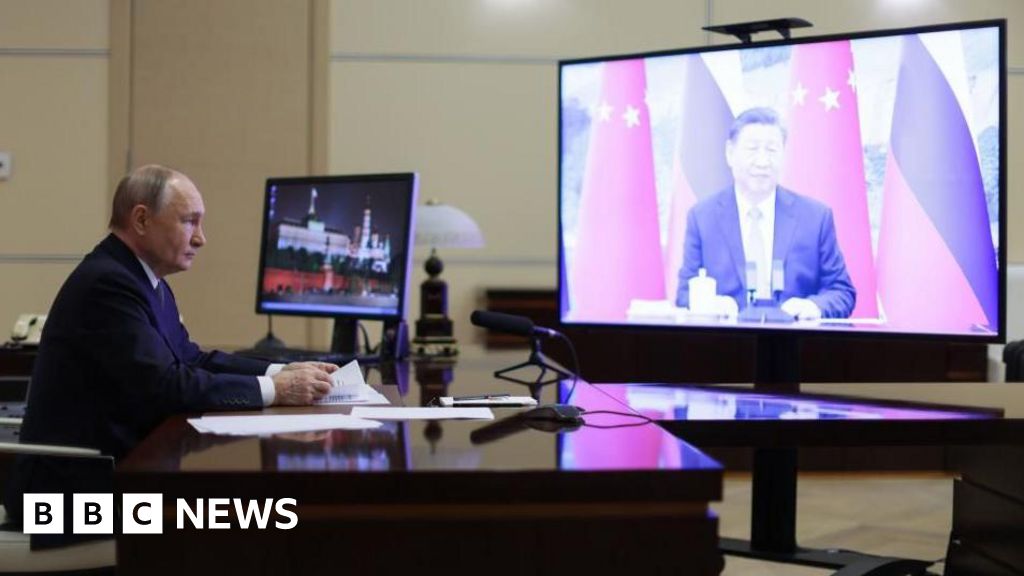
Chinese President Xi Jinping and his Russian counterpart Vladimir Putin had a video call hours after Donald Trump was sworn in yesterday, pledging to bring bilateral ties to “greater heights”, according to state media on both sides.
Calling Xi a “dear friend”, Putin said Russia and China were building ties “on the basis of friendship, mutual trust and support” despite external pressure.
Xi called on Putin to “continue deepening strategic coordination, firming up mutual support, and safeguarding legitimate interests”.
Trump on Tuesday threatened tariffs on Beijing, calling it “an abuser”, and warned that “big trouble” will come for Moscow if it does not strike a deal to end war in Ukraine.
Putin told Xi, however, that any Ukraine settlement “must respect Russian interests”, according to foreign affairs adviser Yuri Ushakov who spoke to reporters after the call.
Beijing has been accused of building up Moscow’s war machine by providing it with critical components for the conflict in Ukraine.
Trade between both countries reached a record $240bn (£191bn) in 2023, up more than 64% since 2021 – before Russia invaded Ukraine.
“Putin and Xi confirmed readiness to build relations with the US on a mutually beneficial and respectful basis, if the Trump team shows an interest”, Ushakov said.
He also said, however, that the call was “not connected with Trump’s inauguration in any way”.
The call lasted about one-and-a-half hours, during which Putin and Xi also discussed the situations in the Middle East, South Korea and Taiwan, according to Ushakov.
Chinese state media said Xi also expressed readiness to work with Putin in response to “external uncertainties”, without mentioning specifics.
Xi held a phone call with Trump last week, which the US president described as a “very good” discussion for both countries. They spoke about trade, fentanyl and TikTok, among other things, he said.
Putin has yet to speak with Trump, but congratulated him on state television hours before the inauguration.
NewsBeat
Tensions over when to make Southport attack details public
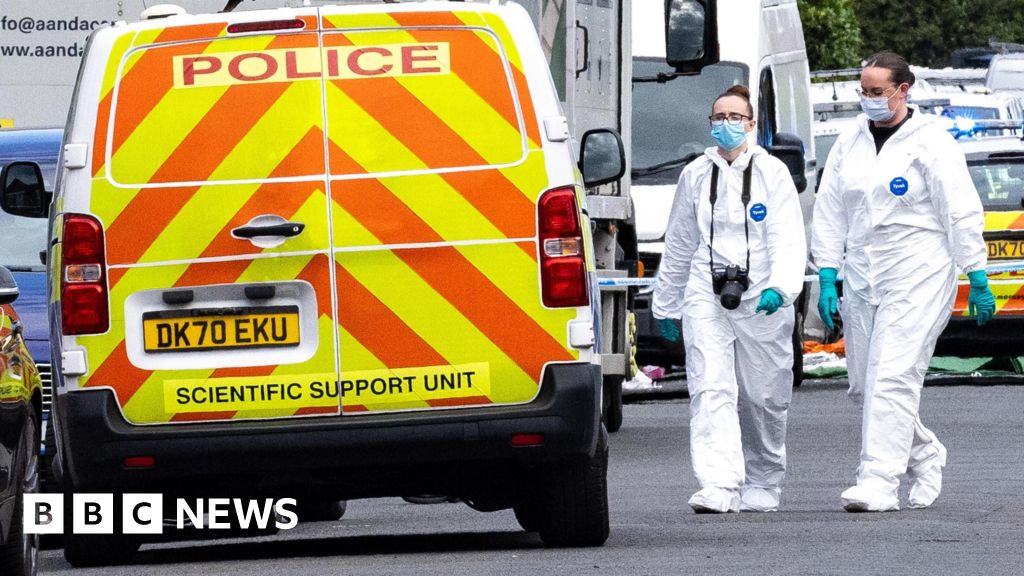
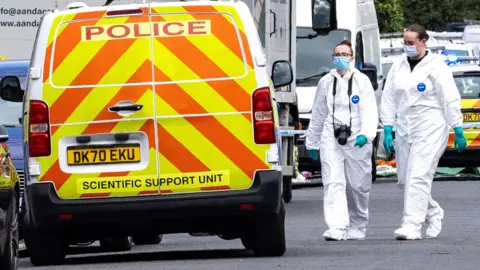 PA Media
PA MediaThe Conservatives have called for the forthcoming public inquiry into the Southport murders to consider why the police, prosecutors and government did not make public more details about the killer last summer before his trial.
Home Secretary Yvette Cooper and Prime Minister Sir Keir Starmer have both said the government could not have risked Axel Radukabana walking free by ignoring advice that publishing information could have jeopardised his trial.
But Conservative shadow home secretary Chris Philp said it was likely an “information vacuum” had resulted in misinformation which “fuelled” the riots which followed the Southport attack.
He asked why the discovery of ricin and a copy of an al-Qaeda training manual in Radukabana’s house could not have been swiftly revealed.
Cooper said the government had wanted to make public that Radukabana had been referred to the counter-extremism programme Prevent, but could not because of legal advice.
Rudakubana was charged with three counts of murder and 10 of attempted murder on 31 July, shortly after launching his attack which killed Bebe King, six, Elsie Dot Stancombe, seven, and Alice da Silva Aguiar, nine.
Within days, in early August, officers searching Rudakubana’s home found ricin and a file entitled “Military Studies in the Jihad against the Tyrants, the Al Qaeda training manual”.
The government was kept up-to-date about the discovery. The BBC has been told the ricin was in a Tupperware box in his bedroom.
Police rarely give details of an ongoing investigation without what they describe as a “policing purpose”.
In this case, false rumours were spreading online about the killer, including that he had migrated to Britain.
Senior officers felt under pressure to reassure the public, and dispel some of the rumours about the suspect by making clear he was in fact British.
But after discovering the ricin and manual they did not immediately make this public.
The investigation continued, with searches taking weeks because of the need for teams to wear hazmat suits and take a break every 40 minutes.
As they prepared to announce the outcome to the investigation, senior police officers became frustrated that the Crown Prosecution Service (CPS) was advising them to withhold many details they felt should be made public, due to false claims online.
The killer was not charged with production of a biological weapon, and possession of information likely to be useful for terrorism, until 29 October 2024.
Sources close to the handling of the case say police wanted to announce these charges and reveal the discovery of the ricin and manual 11 days earlier, on 18 October, but there was a hold-up as the CPS and the police negotiated over what could be said publicly.
A source said the CPS “put a load of red pen through the statement”.
Rudakubana was finally charged with the additional two offences on 29 October.
It was at this point, three months after the Southport attacks, that police made public for the first time that the ricin and manual had been found.
He was not charged with preparing for acts of terrorism, because under current laws this would involve finding evidence of a political motivation or ideology, and none had been found.
The prime minister suggested on Tuesday the laws defining terrorism might need to change to take account of lone attackers without a clear motivation.
Rudakubana has now pleaded guilty to all the charges he faced and will be sentenced on Thursday.
Normally the risk of jeopardising the case falls away once all charges have been decided, either by a plea, or a jury reaching a verdict.
Crime reporters attended a police and CPS-led briefing setting out the entire case – but on Monday, the CPS again decided the information should not be published, this time until after the sentencing.
Despite that, the prime minister and home secretary have both given details about the case in the Commons.
Sir Keir Starmer’s deputy official spokesperson told political reporters on Tuesday afternoon that the prime minister had “not strayed” into areas related to sentencing.
Yet the CPS insists it needs to protect the sentencing process due to take place on Thursday.
Nick Price, CPS director of legal services, said: “The next stage of the process is for the prosecution to present our full case to the court on Thursday – including relevant details of the defendant’s past – so the judge can consider all the evidence when passing sentence.
“This will be the point when the full details of this case will be heard by the public.
“We recognise the profound interest in these proceedings, and it is important the prosecution case is presented to the court so the facts can be determined which may inform the sentence handed down.”
The CPS has taken this position because it believes the judge is entitled to make factual findings about the case and must also determine what weight to attach to different aspects of the evidence.
However, the Crime Reporters Association, representing around 50 senior crime and home affairs correspondents, has written to the CPS raising concerns that the service is breaching a long-established principle that there is no legal risk in publishing material about a case after guilty pleas and before sentencing.
The CPS said in its response that the “independence of the judge must be respected”.
NewsBeat
Mental health of working-age population appears to be getting worse
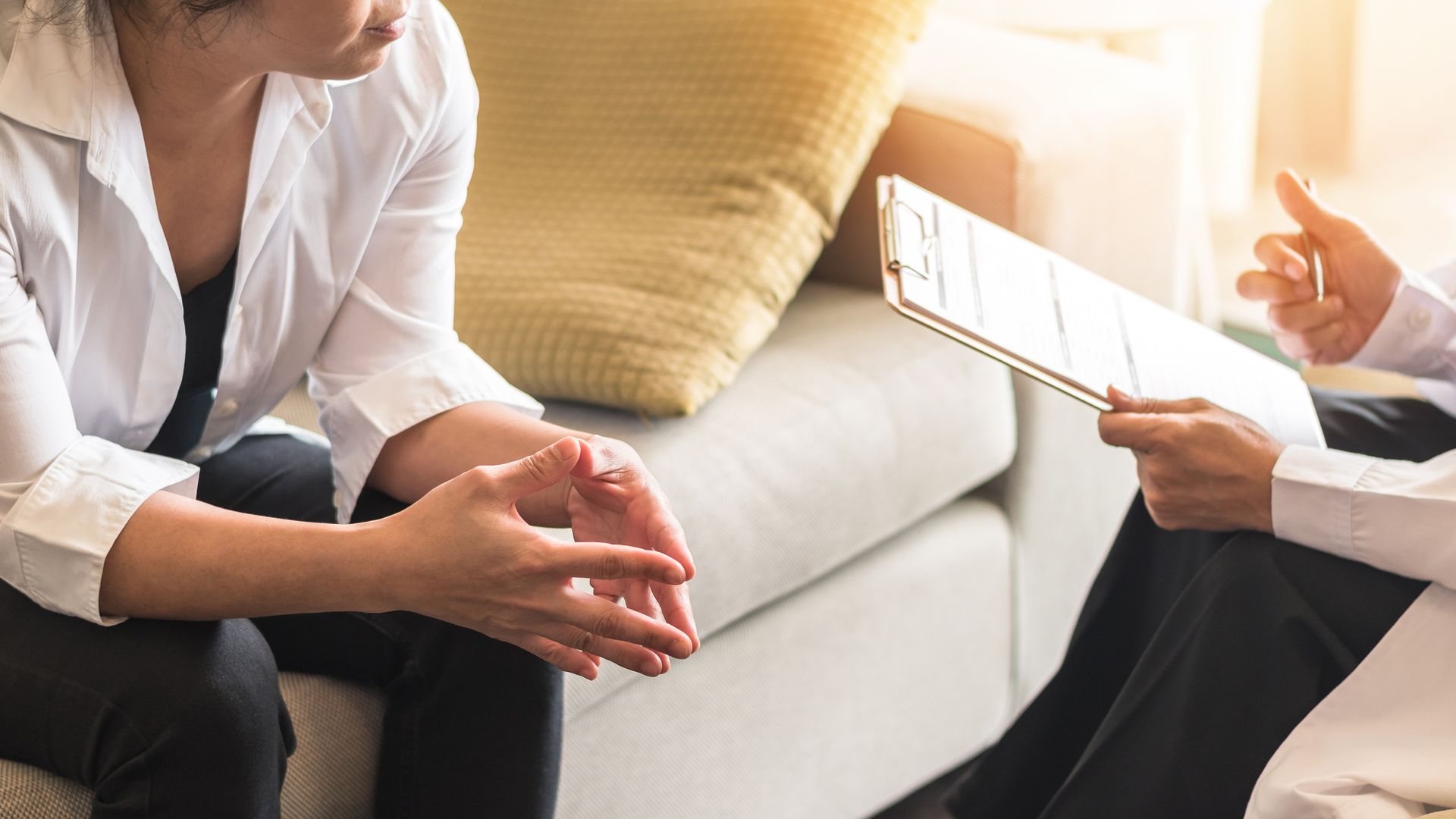
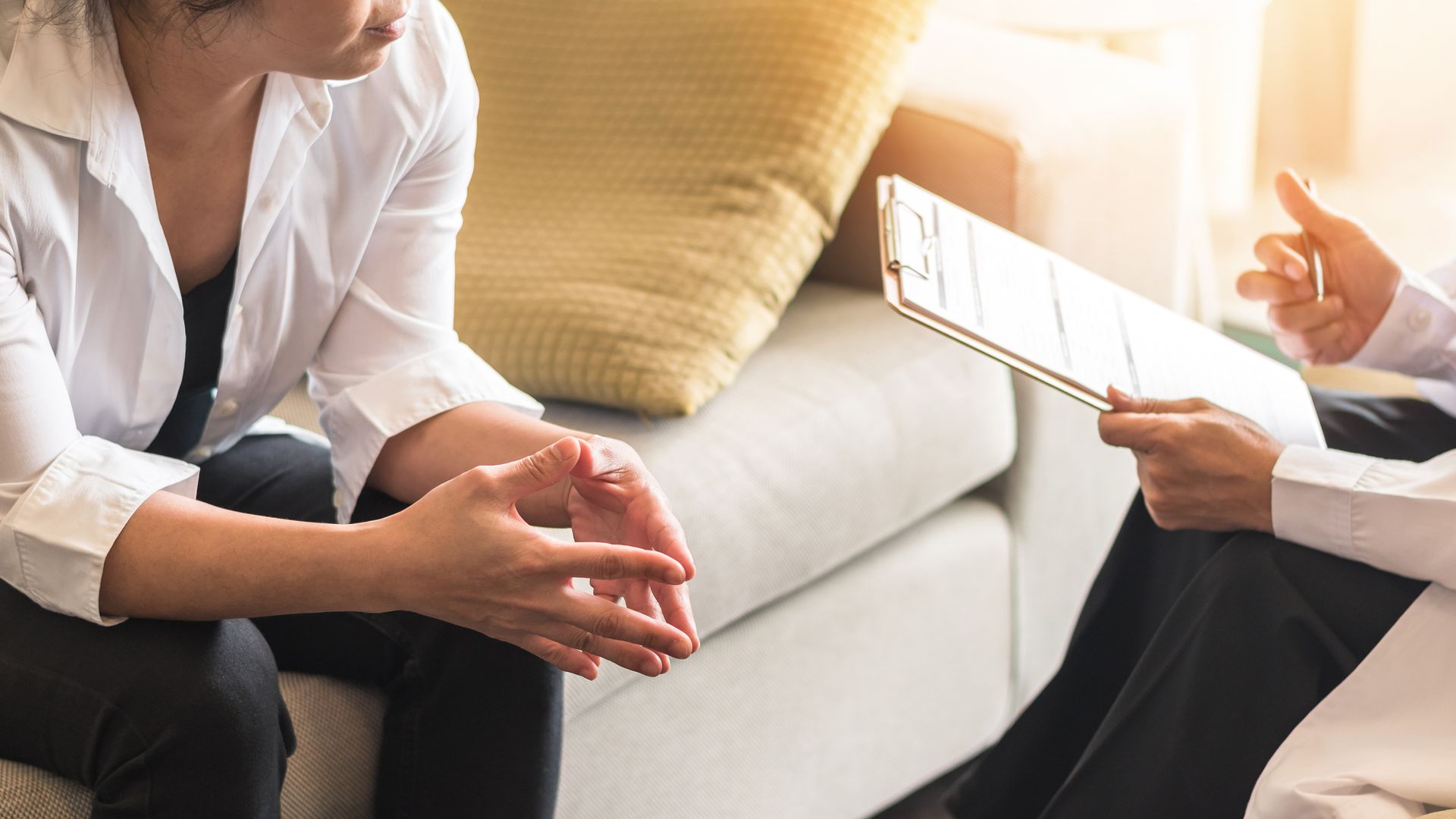
The mental health of the working-age population appears to be getting worse, with the number of NHS prescribed anti-depressants rising 32% in nine years.
NewsBeat
Two 14-year-old boys charged with raping girl in New Forest park | UK News


Two teenage boys have been charged with rape, in Hampshire.
The incident is alleged to have taken place at Fordingbridge recreation ground on the evening of 17 January.
Hampshire Police said that both boys, who cannot be named for legal reasons, were from Fordingbridge and aged 14.
One, police said, had been charged with rape, threats to kill, possession of a knife in a public place and kidnap/falsely imprisoning a person with intent to commit a relevant sexual offence.
The second has been charged with rape, threats to kill and kidnap.
A third boy, aged 13 from Romsey, was released on conditional bail pending further police inquiries.
Both defendants have been sent to appear at Southampton Youth Court.
Read more from Sky News:
Digital driving licences to be introduced
Dangerous winds to hit UK this week
Six-year-old girl and man found dead
A force spokesperson said: “Police were called at 10.41pm on Friday January 17, however the incident is suspected to have occurred earlier in the evening.
“The girl continues to be supported by specialist officers.”
NewsBeat
US tech giants announce AI plan worth up to $500bn
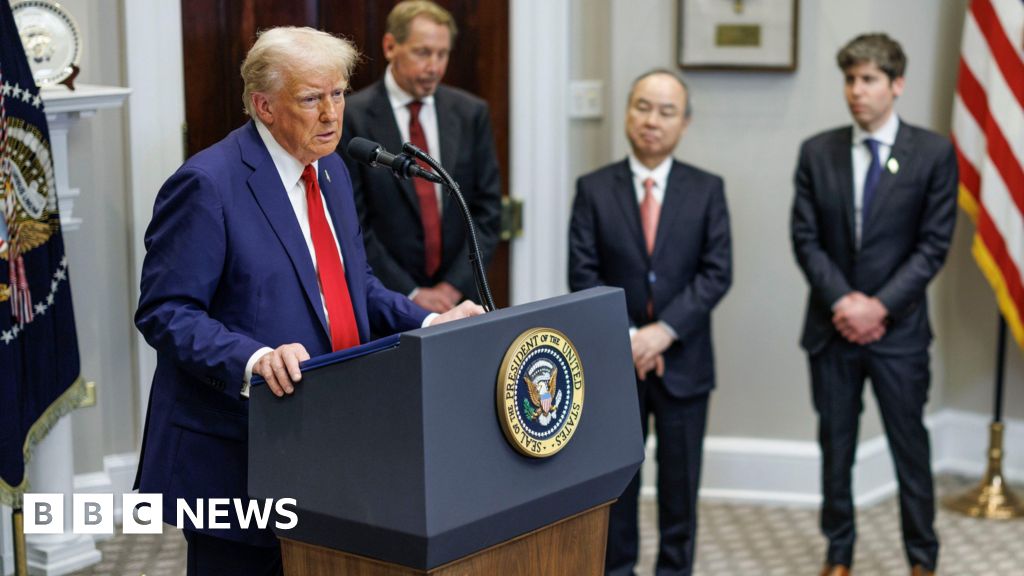
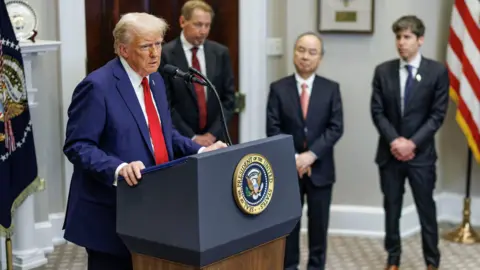 Getty Images
Getty ImagesOpenAI is teaming up with Oracle and Softbank to build data centres equipped to power artificial intelligence (AI), with plans to invest $100bn “immediately”.
Flanked by the bosses of the three companies at the White House, US President Donald Trump said the plan is a “resounding declaration of confidence in America’s potential”.
OpenAI has previously called for major investments in infrastructure to support AI and pushed for government support of those plans.
The ChatGPT-creator and Softbank said the joint venture, dubbed Stargate, intends to invest $500bn over the next four years.
“I think this will be the most important project of this era,” said OpenAI’s chief executive, Sam Altman.
“We wouldn’t be able to do this without you, Mr President,” he added, crediting Trump despite work on the project already being under way.
The plan, which involves the construction of AI infrastructure such as data centres, is expected to create more than 100,000 jobs, according to Trump.
Oracle’s chief technology office, Larry Ellison, said the first data centres are under construction in Texas and more will be built in other locations.
The Information, a technology news website, first reported on the project in March last year.
OpenAI said the announcement of the new company, which also includes UAE-backed investor MGX, was the culmination of more than a year’s worth of conversations.
Other partners in the project include tech giants Microsoft, Arm and NVIDIA, according to statements by Softbank and OpenAI.
OpenAI kicked off the AI race in 2022 with the launch of its ChatGPT bot, which offered lifelike responses to questions and showcased the rapid advances in the technology.
It has prompted a gush of investment, including in the specialised data centres needed to power the computing.
But the projected surge in demand for the centres, which will require huge amounts of power to run and money to be built, has raised concerns about the impact on energy supplies and questions about the role of foreign investors.
In one of his final acts in the White House, former President Joe Biden put forward rules that would restrict exports of AI-related chips to dozens of countries around the world, saying the move would help the US control the industry.
He also issued orders related to the development of data centres on government land, which spotlighted a role for clean energy in powering the centres.
The latest investment plans are not unusual in the context of the industry.
Microsoft, one of the OpenAI’s major backers, said earlier this month it was on track to invest $80bn to build out AI-powered data centres this year.
It is also involved in a $100bn venture that includes BackRock and is focused on making AI data centre investments.
Amazon has been pouring money into the space at a similar scale, announcing two projects worth about $10bn each just in the last two months.
In a report last year, McKinsey said that global demand for data centre capacity would more than triple by 2030, growing between 19% and 27% annually by 2030.
For developers to meet that demand, the consultancy estimated that at least twice the capacity would have to be built by 2030 as has been constructed since 2000.
But analysts have warned that the process is likely to be bogged down by issues such as power and land constraints and permitting.
NewsBeat
Six Trump executive orders to watch
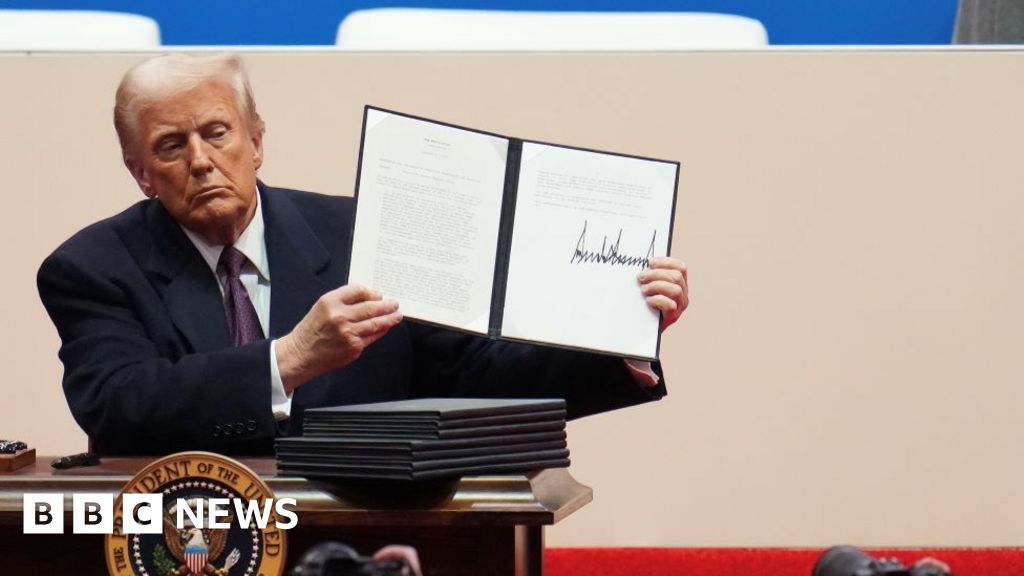
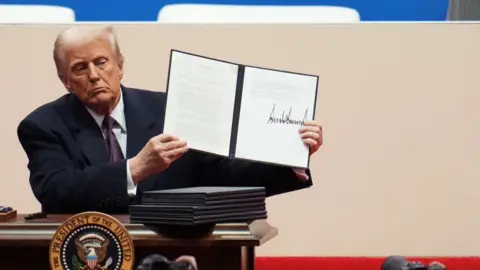 Getty Images
Getty ImagesDonald Trump has signed sweeping executive orders on his return to the US presidency, vowing swift action on some of his top campaign issues.
Among the directives that have gained the most publicity are an immigration crackdown and rollbacks of some climate-friendly policies.
But even presidential powers have their limits – and in some cases, he faces hurdles before his plans can become reality.
Declaring drug cartels as ‘foreign terrorist organisations’

By Bernd Debusmann Jr, at the White House
What does the order say?
The order argues that cartels have “engaged in a campaign of violence and terror” throughout the hemisphere, and flooded the US with crime, posing a national security risk to the US.
Additionally, the order specifies that the US policy is to “ensure the total elimination” of these groups in the US. It gives US agencies 14 days to provide recommendations on which groups are to be designated and be ready to expedite the removal of individuals from the US.
What are the roadblocks?
Designating a cartel as a terrorist group could open the door to prosecuting US citizens or even legitimate businesses found to be somehow tied to those groups. The designation could also strain relations with countries including Mexico, which has vocally called for its sovereignty to be respected.
What is the potential impact?
For one, the designation of these groups as foreign terrorist organisations could ultimately be used to justify military action against targets in Mexico or other countries in which similar groups operate.
The designation could also see the US federal government dedicate more resources and enhanced legal tools to fight cartels and other gangs, and go after their business and financial interests on both sides of the border.
While it would make “material support” of these groups a crime, it remains unclear what that could mean. In theory, that could mean that drug dealers and users, including US citizens, could be charged with aiding terrorists – as could US citizens or businesses on the border that are extorted to pay them.
Pulling out of Paris climate accord

By Nadine Yousif, Toronto
What does the order say?
The executive order asks the US ambassador to the UN to “immediately” submit a formal written request to withdraw from the Paris agreement.
It says the accord does not reflect the country’s values or its economic and environmental objectives.
What are the roadblocks?
Any country can withdraw from the global climate pact, but UN regulations mean the process of removing a country can be drawn out.
Trump announced his intent to withdraw during his last term in 2017, but it was not formally finalised until 2020. We can expect another waiting period this time of at least one year.
President Joe Biden rejoined it shortly after taking office in 2021
What is the potential impact?
The US is responsible for around 11% of global greenhouse gas emissions, making it the second biggest polluter behind China. This damages the global effort to limit emissions.
Its withdrawal in the past has raised issues of trust on climate leadership, and questions about whether the agreement itself has been effective.
The withdrawal is also in line with Trump’s goal to boost domestic oil and gas production, though the US is already the number one producer of both in the world. It is one of several of Trump’s reversals of environmental protections that were enacted by the Biden administration.
Ending birthright citizenship

By Jake Horton, BBC Verify
What does the order say?
This order aims to end birth right citizenship for children born in the US to immigrant parents who are in the country illegally, as well as those born to parents who are in the country on a temporary basis.
There have been reports that the administration will enforce the order by withholding documents, such as passports, from people it deems ineligible for citizenship.
What are the roadblocks?
The principle of birthright citizenship is established in the US Constitution. The 14th Amendment says that “all persons born or naturalized in the United States” are citizens of the United States.
The legal challenges are already under way – one claims the order is “unconstitutional, and flouts fundamental American values”.
“Ultimately this will be decided by the courts. This is not something [Trump] can decide on his own,” Saikrishna Prakash, a constitutional expert, told the BBC.
What is the potential impact?
Trump has threatened mass deportations, which could include those whose birthright citizenship is revoked if Trump is successful in enforcing this executive action.
Legal cases could ultimately have to be decided by the US Supreme Court, which could take a long time.
Withdrawing from World Health Organization (WHO)

By Dominic Hughes, health correspondent
What does the order say?
The order says the US was withdrawing “due to the organization’s mishandling of the Covid-19 pandemic”.
Trump’s longheld antipathy towards the WHO is rooted in a perception that it was dominated by – and so soft on – China, which the president has long believed was responsible for the spread of the virus.
It also mentions “unfairly onerous payments” the US made to the WHO.
What are the roadblocks?
It is the second time Trump has ordered the US be pulled out of the WHO. He began the process and Biden later reversed the decision after taking office.
The US exit won’t take effect until 2026 at the earliest, but leaving will require the approval of Congress.
On paper, the Republicans have a majority in both houses of Congress. But their numerical advantage is slim, and it would only take a few Republican defectors to potentially block the move.
What is the potential impact?
“Catastrophic”, “disastrous”, “damaging” is how some global public health experts are describing it.
Of the 196 member states, the US is by far the largest individual funder, contributing almost a fifth of the total WHO budget.
It’s possible that funding could disappear almost overnight and that could have an impact on the ability of the WHO to respond to emergencies.
There is also concern among some scientists that this would leave the US isolated when it comes to access to programmes such as pandemic preparedness and seasonal influenza strain sequencing, which is used to develop annual flu jabs.
That could ultimately harm the health of Americans, and the US national interest.
Some argue US withdrawal could prompt further reforms of how the WHO works, making it a body that better serves the public health needs of people around the globe.
Renaming Gulf of Mexico

By Jake Horton, BBC Verify
What does the order say?
The order calls for the Gulf of Mexico to “officially be renamed the Gulf of America”.
Trump can change the name of the Gulf on official US government documents.
This has happened on some documents already – including a weather update from Florida’s Republican Governor Ron DeSantis, which refers to “an area of low pressure moving across the Gulf of America”.
What are the roadblocks?
Trump can’t force other countries or companies to change the name.
For example, it’s currently still labelled as the Gulf of Mexico on Google Maps.
What is the potential impact?
There’s no formal international agreement for the naming of maritime areas – although there is a body that seeks to resolve disputes if raised.
So Mexico could raise an official dispute, and allies of the US and Mexico could be caught up in a diplomatic spat between the two countries.
In response to the order, Mexico’s President Claudia Sheinbaum said the US can call it the “Gulf of America”, but this won’t change what Mexico and the rest of the world call it.
The US recognises two sexes, male and female

By Ben Chu and Lucy Gilder, BBC Verify
What does the order say?
“It is the policy of the United States to recognize two sexes, male and female. These sexes are not changeable and are grounded in fundamental and incontrovertible reality,” it says, adding that the federal government will use the term sex, not gender.
President Trump’s team argues that requirements to refer to transgender people in government facilities and workplaces by pronouns that match their gender identity violates the US Constitution’s First Amendment on freedom of speech and religion.
States like Kansas and Montana have already legislated to enshrine a biological definition of sex into law.
What are the roadblocks?
There are likely to be legal challenges.
The Human Rights Campaign, which represents LGBTQ+ people, stated that “we will fight back against these harmful provisions with everything we’ve got”.
These challenges could work their way up to the US Supreme Court which, with its conservative majority, could rule in Trump’s favour.
What is the potential impact?
Prisons and settings such as shelters for migrants and rape victims would be segregated by sex under the plans, which campaigners say will help safeguard women. But transgender rights groups say trans women could be put at a heightened risk of violence.
Official identification documents, including passports and visas, would have to state whether the individual was “male” or female”. US citizens would no longer be able to select “X” as a third option.
NewsBeat
Waitrose brings back free coffee for shoppers who buy nothing

Waitrose has reintroduced free coffee for all loyalty scheme members even if they haven’t bought anything from the supermarket.
The company has told those signed up to its myWaitrose scheme that from 27 January they can get one complementary hot drink a day with no purchase needed – provided they bring a reusable cup.
The freebie was introduced in 2013 but the terms were changed four years later to apply to customers who had shopped in-store, before being completely scrapped during Covid and then gradually reintroduced.
A spokesperson for Waitrose said: “Some of our members like to have their free coffee before or during their shop, rather than afterwards, so we are just offering a bit of flexibility in response to customer feedback.”
The perk had been hugely popular when it was launched – though it was criticised by some existing Waitrose customers who suggested that it attracted the “wrong type” of shopper to the stores.
After being stopped in the early months of Covid, Dame Sharon White, the former chair of the John Lewis Partnership, which operates Waitrose, slowly reintroduced it for loyalty scheme members who made a purchase.
She was replaced in September last year by Jason Tarry, who worked at Tesco for more than 30 years.
Labour had previously criticised Waitrose’s free coffee offer.
In 2014, the then shadow communities minister, Andy Sawford, asked fellow MPs to write to Waitrose’s managing director to say that the scheme could “further destroy the British high street” and take business away from small firms.
At the time, the UK’s prime minister, David Cameron, said he didn’t know what “people were complaining about”.
The only other group who can get a free coffee from Waitrose without buying anything are the police.
The company offered hot drinks to the police “as part of an initiative to cut down on shoplifting”.
When it was introduced in August 2023, West Mercia Police Federation secretary Pete Nightingale said: “It makes sense from a business perspective because any police presence is bound to have an impact – either as a reassurance for shoppers or a deterrent for shoplifters.”
NewsBeat
Ministers want two-step ID check to stop under-age knife sales
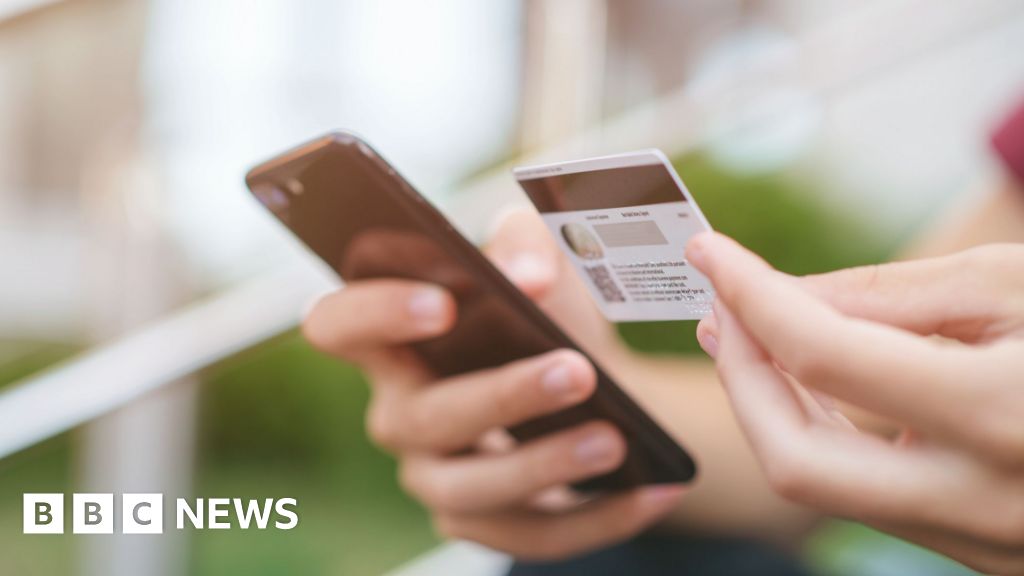
Online retailers will be forced to ask anyone buying a knife for two types of identification under government plans to prevent under-age sales in the wake of the Southport knife attack.
Axel Rudakubana, who has admitted killing three young girls last summer, bought the knife he used from Amazon when he was just 17, despite existing laws which prohibit the sale of most knives to under-18s.
Proposed checks would see buyers asked to submit an identity document, such as a passport, and record a live video to prove their age.
Amazon has said it takes its “responsibility around the sale of all age-restricted items – including bladed products – extremely seriously” and has launched an investigation.
Stronger ID checks are one of the proposals from a review of online knife sales being carried out for the government by Commander Stephen Clayman, the National Police Chiefs’ Council’s lead for knife crime.
At present, customers ordering knives on Amazon, for example, are asked to enter their date of birth and told: “Proof of age and a signature will be required on delivery”.
Cdr Clayman had been due to report at the end of this month, but the plans are now being brought forward. It was not immediately clear whether the move will require new legislation.
The government, which has pledged to halve knife crime over the next decade, previously announced new sanctions – including personal fines – for executives at tech companies which fail to tackle illegal knife sales on their platforms.
The last decade has seen a significant rise in knife crime, with the number of serious offences in England and Wales in the year ending March 2024 up 54% on the equivalent figure for 2016.
In a opinion piece for Wednesday’s Sun newspaper, Prime Minister Sir Keir Starmer wrote that it “remains shockingly easy for our children to get their hands on deadly knives”.
“The lessons of this case could not be clearer,” he said.
“Time and again, as a child, the Southport murderer carried knives. Time and again, he showed clear intent to use them.
“And yet tragically, he was still able to order the murder weapon off the internet without any checks or barriers. A two-click killer. This cannot continue.
“The technology is there to set up age-verification checks, even for kitchen knives ordered online.
“We must now use it to protect our children from future attack and I will ensure that this happens.”
A spokesperson for Amazon said: “We use trusted ID verification services to check name, date of birth and address details whenever an order is placed for these bladed items.
“We have an age verification on delivery process that requires drivers to verify the recipient’s age through an app on their devices before handing over a parcel containing an age-restricted item.”
On Monday, on the first day of his trial, Rudakubana pleaded guilty to the murder of six-year-old Bebe King, seven-year-old Elsie Dot Stancombe, and nine-year-old Alice da Silva Aguiar at a Taylor Swift-themed dance class last July.
Home Secretary Yvette Cooper told the Commons it was a “total disgrace” that Rudakubana had been “easily able to order a knife on Amazon” despite his age as well as a prior conviction for a violent offence against another child at school.
He had also been referred to Prevent, the government’s anti-extremism programme, on three separate occasions between 2019 and 2021 and admitted to carrying a knife more than 10 times.
NewsBeat
Why Thailand became a haven for LGBT couples

 Getty Images
Getty Images“It has been a long fight full of tears for us.”
That is how Ann “Waaddao” Chumaporn describes the years that led to this moment – on Thursday, when same-sex marriage becomes legal in Thailand, and more than a hundred couples will tie the knot in one of Bangkok’s biggest shopping malls, in a riot of colour and celebration.
And the same question which has been heard throughout the long campaign to get the equal marriage law passed will be asked again: why Thailand? Why nowhere else, aside from Taiwan and Nepal, in Asia?
People think they know the answer. Thailand is famously open to and accepting of lesbian, gay, bisexual and trans people. They have long been visible in all walks of life. Thai people are easy-going about pretty much everything. “Mai pen rai” – no big deal – is a national catch-phrase. Buddhist beliefs, followed by more than 90% of Thais, don’t forbid LGBT lifestyles. Surely, then, equal marriage was inevitable.
Except it wasn’t. “It was not easy,” says Ms Waaddao, who organises Bangkok Pride March.
The first Pride march in Thailand took place only 25 years ago. Back then it was hard to get approval from the police, and the march was a chaotic, unfocused event. After 2006 only two marches took place until 2022. In 2009 one planned Pride march in Chiang Mai had to be abandoned because of the threat of violence.
“We were not accepted, by our own families and by society,” Ms Waaddao adds. “There were times when we did not think marriage equality would ever happen, but we never gave up.”
‘We did not fight, we negotiated’
For all of Thailand’s general tolerance of LGBT people, getting equal rights, including marriage, required a determined campaign to change attitudes in Thai officialdom and society. And attitudes have changed.
When Chakkrit “Ink” Vadhanavira started dating his partner in 2001, they were both actors playing leading roles in TV series. At that time homosexuality was still officially described by the Thai Ministry of Health as a mental illness.
“Back then society could not accept leading male roles being played by a gay man. There was lots of gossip about us in the media, much of it untrue, which really stressed us,” Mr Chakkrit recalls.
“We decided then that if we were going to date each other, we had to leave showbiz.”
They are still together but they have stayed out of the limelight for more than 20 years, running a successful production company.
A lot has changed in that time – and their industry gets some credit for that.
The way LGBT characters are portrayed in Thai TV dramas, from comical oddities to mainstream roles, made a big difference, according to Tinnaphop Sinsomboonthong, an assistant professor at Thammasat University who self-identifies as queer.
“Nowadays they represent us as normal characters, like you see in real life,” he says. “The kind of LGBTQ+ colleague you might have in the office, or your LGBTQ+ neighbour. This really helped change perceptions and values in all generations.”
The so-called Boy Love dramas have helped bring the rest of society round to the idea of not just tolerance, but full acceptance and equal rights for the community.
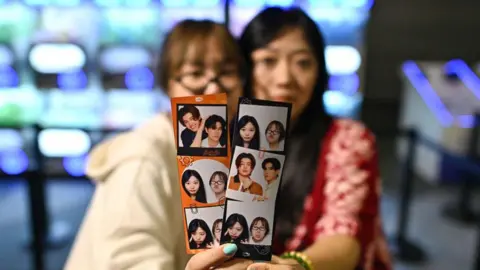 Getty Images
Getty ImagesThese romantic television dramas featuring love affairs between beautiful young men have grown enormously in popularity over the past decade, especially during the Covid pandemic.
They are now one of Thailand’s most successful cultural exports, with huge audiences in places like China. Series like My School President and Love Sick have got hundreds of millions of views on streaming networks.
At the same time, activists became more focused and united in their bid to get the law changed. The many different LGBT groups came together in the Change 1448 campaign – 1448 is the clause in the Thai Civil Code covering the definition of marriage – and later under the Rainbow Coalition for Marriage Equality.
They linked up with other groups fighting for greater rights and freedoms in Thailand, and they learned to work with political parties in parliament to persuade them to change their stance on the law.
The resumption of Pride marches in 2022, and getting the government to recognise and promote the appeal of Thailand as an attractive destination for LGBT travellers also helped change public perceptions.
“We did not fight, we negotiated,” Mr Tinnaphop says. “We knew we had to talk to Thai society, and little by little, we shifted attitudes.”
The right political moment
Getting the equal marriage law through parliament was also helped by political developments in Thailand.
For five years following a coup in 2014, the country was ruled by a conservative military government, which was willing only to consider recognising civil partnerships for LGBT couples, without full rights like inheritance.
But in the 2019 election which returned Thailand to civilian rule, a new, youthful reformist party called Future Forward, which fully supported equal marriage, did unexpectedly well. They won the third-largest share of seats, revealing a growing hunger for change in Thailand.
 Getty Images
Getty ImagesWhen a year later Future Forward was dissolved by a controversial court verdict, it set off months of student-led protests calling for sweeping reforms, including curbs to the monarchy’s power.
LGBT campaigners were prominent in those protests, giving them greater national prominence. The protests eventually died down, with many of the leaders arrested for questioning the monarchy’s role.
But in the 2023 election the successor to Future Forward, calling itself Move Forward, performed even better than in 2019, winning more seats than any other party. Again, it was clear that the desire for change was felt across Thai people of all ages.
Move Forward was blocked from forming a government by conservatives who objected to its call for wholesale political reforms.
But by this time, equal marriage was less contentious. Few opposed it. And passing it gave the unwieldy and unpopular coalition government which had been formed without Move Forward a quick accomplishment with which to please most of the country.
Pioneering move may boost tourism
Thailand, though, is an outlier in Asia. Few other countries in the region are likely to follow suit.
The influence of Islam in Malaysia, Indonesia and Brunei makes the notion of equal marriage a non-starter. LGBT communities there face discrimination and prosecution; in Brunei sex between men carries the death penalty.
 Getty Images
Getty ImagesIn the Philippines, there is growing acceptance of LGBT couples living together openly. But the Roman Catholic Church vehemently opposes same-sex marriage.
In Vietnam, like Thailand, there are no religious or ideological obstacles, but campaigning to change the law, as happened in Thailand, is difficult under a repressive regime. Much the same is true in China. Until the ruling communist party endorses equal marriage, which it shows no signs of doing, it cannot happen.
Even in democracies like Japan and South Korea – where political parties are largely conservative and dominated by older men – the prospects look bleak.
“It is largely conservative Christians who are blocking it,” says Chae-yoon Han, executive director of the Beyond the Rainbow Foundation in South Korea.
“Most, if not all, politicians in the conservative party of President Yoon are devout Christians, and they have framed marriage equality as a ‘leftist agenda’, which could potentially open society to a ‘leftist, communist takeover’.”
India appeared close to legalising same-sex marriage in 2023, when the decision fell to its Supreme Court – but the judges declined, saying it was up to parliament.
So Thailand hopes to benefit from being a pioneer. Tourism is one of the few areas of the Thai economy doing well in the post-pandemic recovery, and the country is seen as a safe and welcoming destination for LGBT holiday-makers.
Growing numbers of same-sex couples from other Asian countries are choosing to live here now.
The legal recognition they can get for their marriages will allow them to raise children and grow old together with nearly all the rights and protections given to heterosexual couples.
-

 Fashion8 years ago
Fashion8 years agoThese ’90s fashion trends are making a comeback in 2025
-

 Entertainment8 years ago
Entertainment8 years agoThe Season 9 ‘ Game of Thrones’ is here.
-

 Fashion8 years ago
Fashion8 years ago9 spring/summer 2025 fashion trends to know for next season
-

 Entertainment8 years ago
Entertainment8 years agoThe old and New Edition cast comes together to perform You’re Not My Kind of Girl.
-

 Sports8 years ago
Sports8 years agoEthical Hacker: “I’ll Show You Why Google Has Just Shut Down Their Quantum Chip”
-
Business8 years ago
Uber and Lyft are finally available in all of New York State
-
Entertainment8 years ago
Disney’s live-action Aladdin finally finds its stars
-
Sports8 years ago
Steph Curry finally got the contract he deserves from the Warriors
-
Entertainment8 years ago
Mod turns ‘Counter-Strike’ into a ‘Tekken’ clone with fighting chickens
-
Fashion8 years ago
Your comprehensive guide to this fall’s biggest trends






You must be logged in to post a comment Login